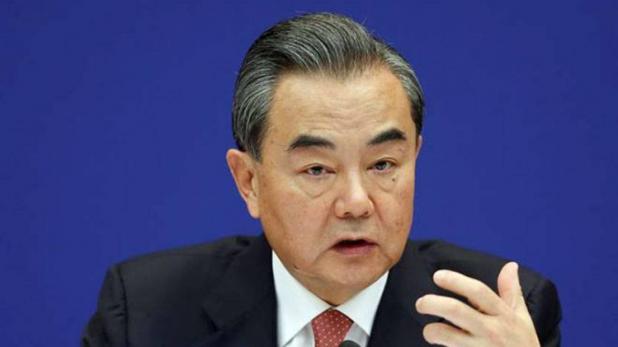The dispute lagging between India and China over the Dokhlam border has been resolved through talks between the two nations. Chinese Foreign Minister Wang Yi issued a statement saying that the stalemate between India and China in Dokalam has ended after the withdrawal of the military by India. He further said that India should learn a lesson from this incident and should refrain from doing anything like this in the future.
The Dolaam controversy may have ended after the mutual agreement between the two countries, but it has not been so easy to finish this tension after the enormous fissure between India and China. China has always shown an egoistic attitude in handling the Dokhlam dispute. On July 27, when Ajit Doval had visited the country to solve the matter amicably and raised the issue at the diplomatic level in Beijing, then the Chinese State Councilor showing its unfriendly attitude had strongly questioned Doval that is this your area?
Doval’s talks with China over the diplomatic front due to China’s tough stance failed to reduce the tension between the two countries. It is believed that in this conversation, Doval replied that the place where there is a dispute is not a territory of China but it has been claimed by Bhutan instead. A newspaper quoted the NSA sources saying that Doval had responded to Chinese State Councilor’s question that “Do every controversial area become a territory of China”?
Ajit Doval during the talks had kept India’s point strongly saying that because the area was part of Bhutan, India took this step in its defense, on the grounds of a treaty signed in the East India with the Himalayan country.
On the triangulation where India, Bhutan and China have a border, India’s objection to the construction of the road from China was due to the fact that due to this construction the current situation of the country would have changed. On this point, China showed a dogmatic attitude. Where China was building the road in Dokalam claiming it to be their territory, India considers it an area of Bhutan.
During the dispute over Dokalmal, Prime Minister Narendra Modi and President Jinping of China had met on July 7 in Hamburg during the G-20 meeting. In this meeting, PM Modi told President Jinping that the dispute should not be allowed to grow any further and he suggested that there should be diplomatic dialogue at the national security level.
PM Modi had told his team that this is the worst phase in the last few decades, so the dispute should be resolved as soon as possible and it should not be transformed into a fight. Modi had said that both countries could achieve a lot with mutual cooperation. But, along with this, he clearly stated, “Drawing a border line, India will not allow any force to change the status quo in force.” The PM had stressed that any kind of change would be done only on the condition of negotiations and mutual agreement.
The effect of this directive of PM Modi resulted that in spite of the unfriendly response from the Chinese side, the government completely avoided giving any kind of inflammatory response. However, China, in the meanwhile, practiced missile and tank attacks, also pelted stones on the Indian soldiers but the Indian troops did not react. The reason for this patience of India was that the army was instructed to ignore any kind of attempt to enrage the Indian army.
However, the Indian army did not take any chance in the watch over there and was present with the troops and weapons at the site of the controversial place. The army retreated back from the border only when a mutual agreement was reached between the two countries in the direction of peaceful restoration.
After the peace talks, Chinese State Councilor said that “we hope that India will learn a lesson from this incident. Also, it will stop the iteration of such incidents in future.” However, the Ministry of External Affairs did not respond immediately to the comments of the Chinese Foreign Minister in New Delhi.
When Wang asked that India has given China the chance to save his face, he said, “The media can conceive and write the report they like, but according to the official information given by the Chinese government Indian soldiers on August 28 afternoon retreated to Indian borders and only after that the dispute was resolved.”
India and China on Monday finished the stalemate by removing their soldiers from the region in Dokalam. This event happened a week ahead of Prime Minister Narendra Modi’s visit to China to join BRICS, Brazil, Russia, India, China and South Africa Summit. Wang told the media, “The case of illegal infiltration of Indian soldiers has been settled.”
The Indian Ministry has however till now not reacted to the statement issued by the Chinese State Councilor, that India should learn a lesson from this and refrain from any such activities in future.

